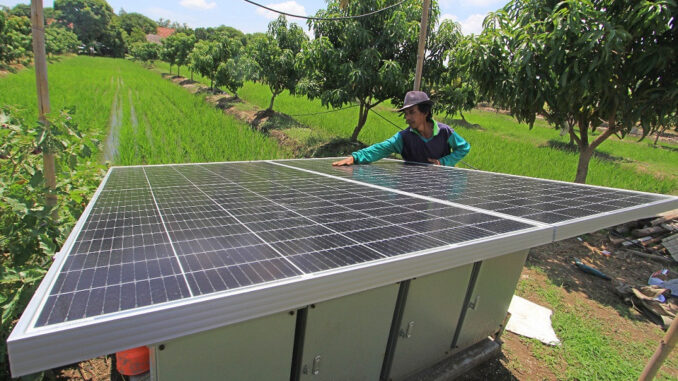
Renewable energy is increasingly becoming a viable and attractive option for businesses in the UK as they strive to become more sustainable and reduce their carbon footprint. There are several renewable energy sources available, each with its own set of pros and cons. In this article, we will explore some of the most popular renewable energy sources for businesses in the UK, namely wind, solar, and hydroelectric power.
Wind Power
Wind power is one of the most well-known renewable energy sources and has been a significant contributor to the UK’s renewable energy mix for several years. The UK has one of the largest wind resources in Europe, making it an attractive option for businesses looking to invest in renewable energy. The pros of wind power include its ability to generate a large amount of energy, which is often more than enough to power a business, and the fact that it is a mature technology, which means it is relatively easy to install and maintain. On the downside, wind power can be affected by weather conditions, and some people find the visual impact of wind turbines unsightly.
Solar Power
Solar power is another popular renewable energy source that has been gaining traction in recent years. The UK may not have the same abundance of sunlight as other parts of the world, but that hasn’t stopped businesses from investing in solar panels. One company that has been at the forefront of solar power in the UK is Western Industrial, a solar panel manufacturer and installer. The pros of solar power include its ability to generate energy during daylight hours, which coincides with the peak energy demand for many businesses. Solar panels are also relatively easy to install and maintain, and they don’t require much space. On the downside, solar panels can be expensive to install, and they may not be suitable for businesses located in areas with limited sunlight.
Hydroelectric Power
Hydroelectric power is a lesser-known renewable energy source but one that has the potential to generate a significant amount of energy. It involves using water to power turbines that generate electricity. The pros of hydroelectric power include its ability to generate a constant source of energy, making it a reliable option for businesses. It is also a relatively mature technology, which means it is easy to install and maintain. On the downside, hydroelectric power requires a significant investment in infrastructure, such as dams and reservoirs. It can also have an impact on the environment, particularly on fish populations and river habitats.
The Pros and Cons of Renewable Energy for Businesses in the UK
Renewable energy sources have several advantages for businesses in the UK. They offer a reliable source of energy, which can help businesses reduce their reliance on fossil fuels and their exposure to energy price volatility. They can also help businesses reduce their carbon footprint and meet their sustainability goals. However, there are also some challenges associated with renewable energy that businesses need to be aware of.
One of the main challenges of renewable energy is its intermittency. Renewable energy sources such as wind and solar power are dependent on weather conditions, which means that their output can vary significantly. This can make it challenging for businesses to rely solely on renewable energy sources, particularly if they have high energy demand. To overcome this challenge, businesses may need to invest in energy storage solutions, which can be expensive.
Another challenge of renewable energy is the upfront costs associated with installing and maintaining the infrastructure needed to generate energy. For example, wind turbines and solar panels can be expensive to install, and they may require ongoing maintenance to ensure they operate efficiently. This can be a significant barrier for businesses that may not have the capital to make the initial investment.
In conclusion, renewable energy sources offer several benefits for businesses in the UK. They provide a reliable source of energy, reduce carbon emissions, and help businesses meet their sustainability goals. However, they also come with some challenges, such as intermittency and upfront costs.

